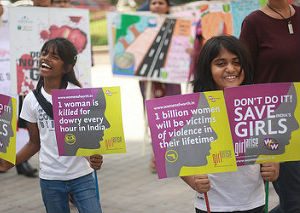There is a great deal of wrong in the world: thievery, dishonesty, injustice, pick your favorite vice. But some people try to do the right thing. Picking India as a microcosm of the world (yes, I know it's a big country, but go with me), there are plenty of examples, at least in fiction, of those who would make life for their fellow humans a little better. Whether a lowly civil servant or a feisty nun, these novels show that there may be a small amount of good in the world.
Ted Oswald's Little Flower is a mystery starring a seemingly mismatched pair: Missionary of Charity (Mother Teresa's people) Shanti and prostitute Meeta. Ram, a young man they both love (in very different ways), has been thrown in front of a train and it is up to Sister Shanti and Meeta to get justice. Written as a letter calling for Sister Shanti's canonization, Oswald takes us through the lower strata of New Delhi in an unpredictable tale that does not end where we expect it to. While going to some very dark places both literally and figuratively, I dare you not to be moved and maybe even uplifted by the last third of this book.
Kiran Desai's sense of the comically absurd keeps things from getting too bleak in The Inheritance of Loss. Patel is a retired, Cambridge-trained judge living in the foothills of the Himalayas when his vivacious, orphaned, teenaged granddaughter comes to live with him. His woefully underpaid cook has sent his own son as an illegal immigrant to New York. As ethnic nationalism roils the area, each character must decide what and who they truly love. Told in alternating voices, this fast-paced novel is also highly reflective.
Point of Return by Siddartha Deb is another look at the effects of post-colonialism, also in northeast India. Dr. Dam is a standout in the Indian civil service for his incorruptibility, which his son, Babu, takes for colonialist subservience. Told backwards from the reconciliation of father and son and the struggle for Dr. Dam's pension, Deb's narrative shows little people caught in the flow of history, particularly as India emerges from Partition and works to become a player on the world stage.
The people in a village that is the site of an industrial chemical leak are deeply suspicious when an American aid worker comes to town in Indra Sinha's Animal's People. Young Animal, whose body has been so disfigured by the toxic spill that he walks on all fours, sees his chance for winning the heart of his friend Nisha, who is enamored of local leader Zafar, with the arrival of the newcomer and the free clinic he establishes. Short-listed for the Man Booker Prize, this is a rowdy farce that is also a paean to resiliency and common decency in a world that seems to have little of either.
Back to the women: Shobhan Bantwal's The Forbidden Daughter deals with the pressure to have a son that still permeates rural Indian society. Isha is expecting a second child, also a girl. When her husband stands up to his family against having an illegal abortion, he conveniently dies. Isha flees to a convent with her daughter, and with the help of her sister-in-law, seeks justice for her husband. Meanwhile, the pediatrician who services the convent and orphanage it runs has fallen in love with Isha. While at first deliberately paced, the suspense mounts as Isha gets closer to finding her husband's killer in this engaging, romantic tale.
Got more novels of Indians working for social justice? Tells us in the comments.



Add a comment to: Novel Destinations: Doing What’s Right In India